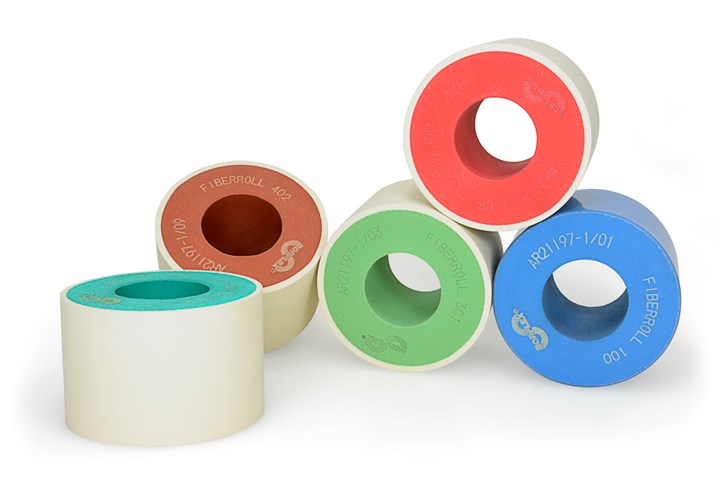Borflex releases compacting AFP roller range
Applicable to thermoset or thermoplastic prepregs, the Fiberroll compacting roller range ensure optimal surface appearance, rugosity and geometry while avoiding material adherence.

Photo Credit: Borflex
(Rouen, France), specializing in the design and development of elastomeric products, has developed Fiberroll, a range of compacting rollers that meet automated fiber placement (AFP) requirements. The rollers are applicable to thermoset or thermoplastic prepregs and are said to meet the criteria for aerospace (silicone-free solutions), automotive, wind, marine and rail sectors.
The primary function of a compactor roller, Borflex Composites says, is to apply pressure to the area where the yarns or webs are laid, including on uneven and complex surfaces. The material used must also have little to no adherence to avoid damage to the threads or layers.

Photo Credit: Borflex
According to the company, its Fiberroll compacting rollers meet these needs. Offered with silicone or as silicone-free, the tailor-made rubber compound solutions enable consistent and improved surface appearance, rugosity and geometry, no matter the roller’s shape. Adherence-free, the rollers also offer up to 500ºC for functional strength-to-temperature by stroke, and a wide hardness range, scaling from 10-30 Sh A (with silicone), and 30-70 Sh A (silicone-free), extending service life. High compression, adaptability for complex forms, abrasion resistance and high linear speed are additional features.
Customization is also offered. Rollers can be manufactured for all size and color requirements. Rollers can be marked with the company/customer name, as well as other necessary information depending on available space left; traceability integration is also possible. Specific packaging is optional. Borflex Composites is also able to supply the complete solution, including metallic or other material axes and ball bearings.
Related Content
-
Reducing accidental separator inclusion in prepreg layup
ST Engineering MRAS discusses the importance of addressing human factors to reduce separator inclusion in bonded structures.
-
TCR Composites introduces TR1116 snap-cure epoxy prepreg resin system
Designed for press-cure applications, the resin system is highlighted for its snap-cure capability and tailored properties.
-
Aerospace prepregs with braided reinforcement demonstrate improved production rates, cost
A recent time study compares the layup of a wing spar using prepreg with A&P’s TX-45 continuous braided reinforcement versus traditional twill woven prepreg.



